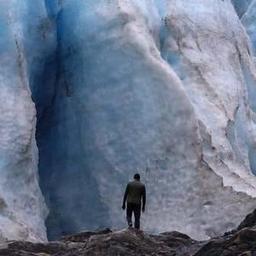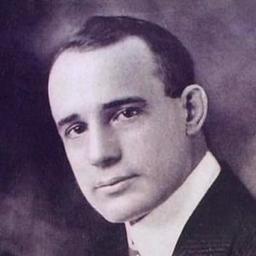29 Quotes
"Mark Bernstein's 1998 essay Hypertext Gardens appears to be the first recorded mention of the term."
— Maggie Appleton
A Brief History & Ethos of the Digital Garden"Unplanned hypertext sprawl is wilderness: complex and interesting, but uninviting. Interesting things await us in the thickets, but we may be reluctant to plough through the brush, subject to thorns and mosquitoes"
— Maggie Appleton
A Brief History & Ethos of the Digital Garden"In April of 2007 when Tweets first started ringing through the internet airwaves, Rory Sutherland (oddly, the vice president of Ogilvy Group) used the term ""digital gardening"", but defined it as ""faffing about syncing things, defragging - like pruning for young people"""
— Maggie Appleton
A Brief History & Ethos of the Digital Garden"At the 2015 Digital Learning Research Network, Mike Caufield delivered a keynote on The Garden and the Stream: a Technopastoral. It later becomes a hefty essay that lays the foundations for our current understanding of the term. If anyone should be considered the original source of digital gardening, it's Caufield."
— Maggie Appleton
A Brief History & Ethos of the Digital Garden"streams only surface the Zetigeisty ideas of the last 24 hours. They are not designed to accumulate knowledge, connect disparate information, or mature over time."
— Maggie Appleton
A Brief History & Ethos of the Digital Garden"The garden helps us move away from time-bound streams and into contextual knowledge spaces."
— Maggie Appleton
A Brief History & Ethos of the Digital Garden"The Garden is the web as topology. The web as space. It’s the integrative web, the iterative web, the web as an arrangement and rearrangement of things to one another."
— Maggie Appleton
A Brief History & Ethos of the Digital Garden"Tom Critchlow's 2018 article Of Digital Streams, Campfires and Gardens was one of the main kick-off points. Tom read Caufield's essay and began speculating on alternative metaphors to frame the way we consume and produce information."
— Maggie Appleton
A Brief History & Ethos of the Digital Garden"Tom piece was shortly followed by Joel Hooks' My blog is a digital garden, not a blog in early 2019."
— Maggie Appleton
A Brief History & Ethos of the Digital Garden"Suddenly people weren’t creating homepages or even web pages... they were writing web content in form fields and text areas inside a web page."
— Maggie Appleton
A Brief History & Ethos of the Digital Garden"Gardens don't consider publication dates the most important detail of a piece of writing. Dates might be included on posts, but they aren't the structural basis of how you navigate around the garden. Posts are connected to other by posts through related themes, topics, and shared context."
— Maggie Appleton
A Brief History & Ethos of the Digital Garden"One of the best ways to do this is through Bi-Directional Links – links that make both the destination page and the source page visible to the reader."
— Maggie Appleton
A Brief History & Ethos of the Digital Garden"Gardens are never finished, they're constantly growing, evolving, and changing. Just like a real soil, carrot, and cabbage garden."
— Maggie Appleton
A Brief History & Ethos of the Digital Garden"In garden-land, that process of researching and refining happens on the open internet. You post ideas while they're still ""seedlings,” and tend them regularly until they're fully grown, respectable opinions."
— Maggie Appleton
A Brief History & Ethos of the Digital Garden"It gives readers an insight into your writing and thinking process."
— Maggie Appleton
A Brief History & Ethos of the Digital Garden"gardens make their imperfection known to readers."
— Maggie Appleton
A Brief History & Ethos of the Digital Garden"it's both intimate and public, weird and welcoming. It's less performative than a blog, but more intentional and thoughtful than a Twitter feed."
— Maggie Appleton
A Brief History & Ethos of the Digital Garden"Digital gardens should be just as unique and particular as their vegetative counterparts. The point of a garden is that it's a personal playspace. You organise the garden around the ideas and mediums that match your way of thinking, rather than off someone else's standardised template."
— Maggie Appleton
A Brief History & Ethos of the Digital Garden"Gardens offer us the ability to present ourselves in forms that aren't cookie cutter profiles. They're the higher-fidelity version, complete with quirks, contradictions, and complexity."
— Maggie Appleton
A Brief History & Ethos of the Digital Garden"Gardening is about claiming a small patch of the web for yourself, one you fully own and control."
— Maggie Appleton
A Brief History & Ethos of the Digital Garden"At the moment our gardens are rather solo affairs. We haven't figure out how to make them multi-player. But there's an enthusiastic community of developers and designers trying to fix that."
— Maggie Appleton
A Brief History & Ethos of the Digital Garden"we've yet to see note-taking software that actively facilitates and encourages these workflows. They are, for the most part, still behaving like storage boxes."
— Maggie Appleton
Programmable Notes"Most of us have an ulterior motive beyond writing notes – we want to remember, understand, synthesise ideas, come to confident conclusions, generate new ideas informed by historical and social events, write coherent essays, or work through difficult problems."
— Maggie Appleton
Programmable Notes"Programmable notes are note-taking systems that allow you to write programmatic rules that facilitate particular ways of working with your notes."
— Maggie Appleton
Programmable Notes"the goal of these is to encourage practices like reflection, synthesis, connection, and serendipity. The goal is not to simply amass notes."
— Maggie Appleton
Programmable Notes"Most ""note-taking"" or ""knowledge management"" software acts as a passive storage container. You create notes, shuffle them around into folders, add a few tags, and then they sit there. Waiting. Until you consciously remember to go looking for them."
— Maggie Appleton
Programmable Notes"Cozy web is Venkatesh Rao 's term for the private, gatekeeper bounded spaces of the internet we have all retreated to over the last few years"
— Maggie Appleton
The Dark Forest and the Cozy Web"The cozy web works on ""(human) protocol of everybody cutting-and-pasting bits of text, images, URLs, and screenshots across live streams"", hopefully one day evolving ""from cut-and-paste to a personal blockchain of context-permissioned, addressable, searchable, interlinked clips"""
— Maggie Appleton
The Dark Forest and the Cozy WebExplore More Quotes 📚
Want to Save Quotes?
Glasp is a social web highlighter that people can highlight and organize quotes and thoughts from the web, and access other like-minded people’s learning.


















